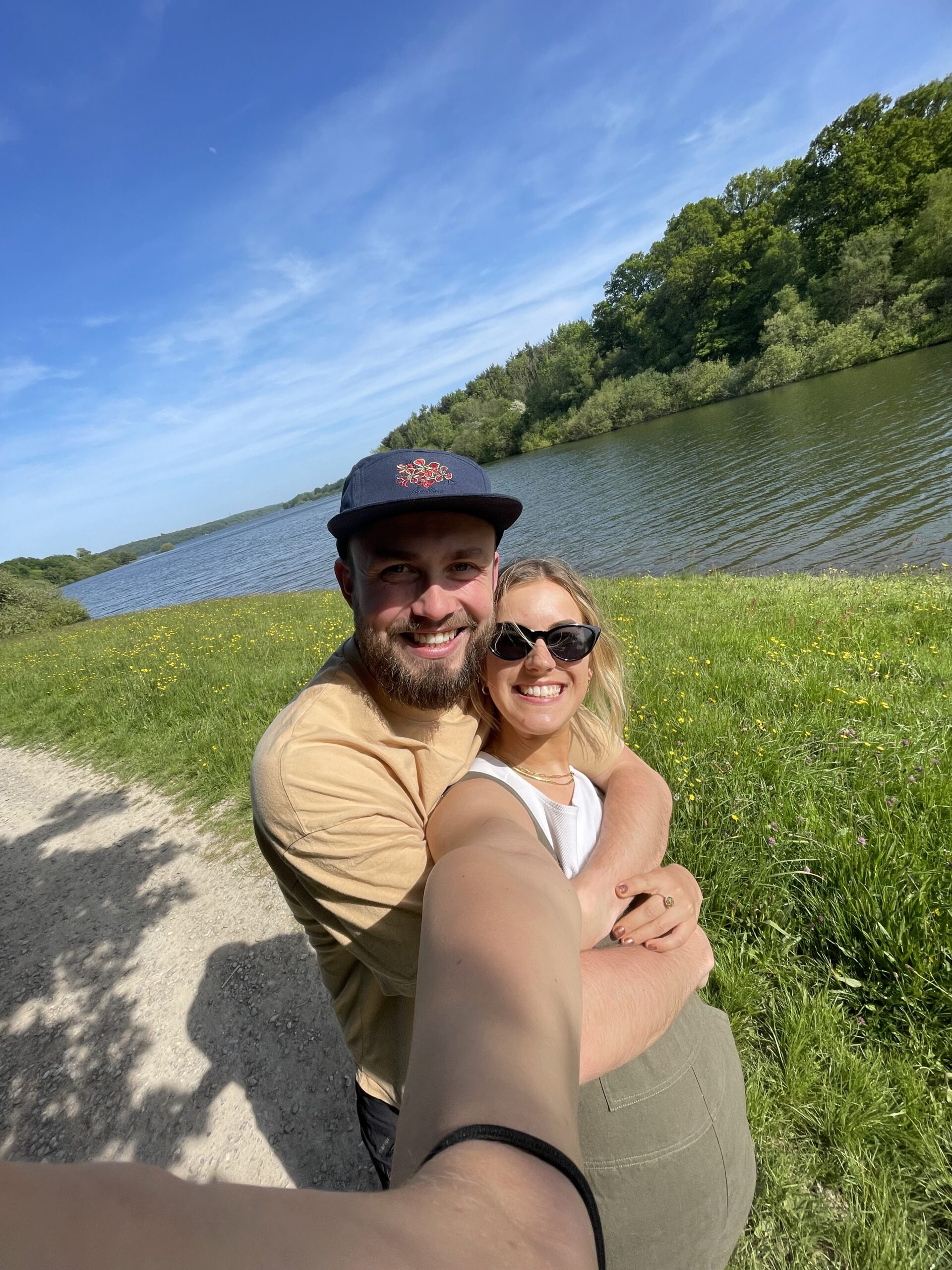Travelling with your partner is definitely no walk in the park. Like solo travel, there are definitely pros and cons to couples travel. There are so many decisions which you have to make together every day, along with unforeseen challenges, occasional change of plans, bad moods, good moods and plenty of stressful situations which you have to learn to navigate together.

Quinn and I have been travelling together since September 2023 and have spent pretty much every day together since. We lived in the UK for almost a year before taking off to South East Asia but I don’t think anything can really prepare you for the challenges of travelling together. During the past 5 months, we have faced challenges I never would have expected, spent more time with each other than ever before and learnt a hell of a lot about one another!
If you’re deciding whether or not to travel with your partner or you’re planning to, I’ve come up with a list of 10 things you should consider beforehand to make sure it’s the right decision for you both.
- Top 10 things to consider before committing to couples travel
- 1. How well do your travel styles align?
- 2. Test the waters
- 3. Resilience and patience
- 4. Shared interests and goals
- 5. Open and honest communication
- 6. Financial compatibility
- 7. How much time are comfortable with spending as a couple?
- 8. Flexibility and compatibility
- 9. Are you able to compromise?
- 10. Conflict resolution skills
Top 10 things to consider before committing to couples travel
1. How well do your travel styles align?
Communication is key before your trip. Be honest and open with each other about your travel expectations, preferences and concerns. Are you both looking for the same type of travel experience? If one of you wants to budget travel whilst the other prefers luxury travel then you might need to consider compromising or taking separate trips.
2. Test the waters
It’s important to keep in mind that travelling is not the same thing as vacationing. If you’re planning a longer trip, maybe consider taking a shorter getaway together fist. This allows you to gauge how well you navigate challenges and enjoy each others company in a travel setting. Pay attention to how you handle disagreements, make decisions and compromise during this getaway so you know what you might need to work on when you take a longer trip.
3. Resilience and patience
Travelling can be demanding and sometimes requires patience and resilience to overcome obstacles. Determine how well you and your partner are at remaining positive and patient in challenging situations. At the same time, it’s hard for both of you to be constantly optimistic or positive about a difficult situation. There might be times where one will require patience and resilience to improve the others mood and help them become more positive.
4. Shared interests and goals
While you don’t have to share every interest, having some common ground will enhance your experience together. Discuss your travel interests, must-see destinations, activities you both enjoy and the overall purpose of your trip.
Aligning your travel aspirations will lead to a more fulfilling journey and help you create memorable shared experiences.
5. Open and honest communication
Communication is not only important during your travel experience but also beforehand. It’s essential that you openly discuss what your expectations are of the trip and potential challenges which you’re worried about. You need to make sure you’re on the same page about the trip before you leave otherwise it could end up with you both being unhappy.
During your travels, you will undoubtedly argue even if it’s over something silly or you’re both just lacking sleep or you’re hungry because you haven’t eaten in hours. It’s important that you communicate openly and eradicate any tension. It’s important that you stick together as a team because most of the time you will be each others only comfort.
6. Financial compatibility
Financial compatibility is crucial when travelling with your partner. Have an honest conversation about your budget, spending habits, and financial priorities. Decide on a budget that works for both of you and be transparent about who will cover what expenses. Alternatively, if you trust each other financially, open a savings account and combine your money for your trip. This will save the hassle of constantly keeping track of how much you’ve both spent or “paying each other back”. We also made sure that we left with the same amount of savings so that we both equally contributed to the trip.
7. How much time are comfortable with spending as a couple?
When you’re travelling you’re often spending extensive amounts of time together. Openly discuss your boundaries with each other. If you think you might need a certain amount of time alone then make sure you’re partner is aware of this. Although, there will be times where it won’t necessarily be possible to spend a lot of time alone especially when on long travel journeys. If you think that you won’t be able to spend such large amounts of time together then maybe couples travel isn’t for you. At the same time, it is important to respect each others independence. Discuss how you can create a balance of spending quality time together and respecting each other’s own space. For us, this can sometimes be as simple as going on a run or visiting a cafe by ourselves – it doesn’t need to be anything extreme!
8. Flexibility and compatibility
Are you both flexible to unforeseen circumstances or a sudden change of plan? Nothing ever really goes to plan and there’s always some unexpected challenges, including flight delays, language barriers, or itinerary changes. Assess how well you and your partner handle uncertainty and adapt to new situations. Being flexible and adaptable can turn unexpected hurdles into memorable adventures.
9. Are you able to compromise?
When you’re solo travelling, you make every decision for yourself. You can eat wherever you want to eat, go wherever you want to go and take part in whatever activity you wish. However, couples travel involves both of you and you’ll both need to agree on most of the decisions you make. It’s unlikely that you’ll both want to do and have the same things all the time so there might be times where one of you has to compromise. You need to be willing to do that for the other person or you might just end up spending more time alone doing what you want rather than together.
10. Conflict resolution skills
Conflicts are inevitable amongst any couple while travelling. Consider how well you and your partner handle disagreements and navigate conflicts. If you can learn to do this constructively by showing empathy and compromise to find mutually satisfying solutions, then you’ll find couples travel a breeze!

Ultimately, travelling with your partner can be a rewarding experience which deepens your connection and creates long-lasting memories. By considering these factors and having open and honest conversations with one another you can hopefully make a decision on whether travelling together is the right choice for you both.
Happy travels!
Find more blog posts about Couples Travel here.




